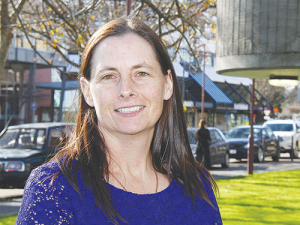Federated Farmers president Katie Milne says she hopes for a fair split.
Read: Who’s paying what on M. bovis?
“[DairyNZ and Beef + Lamb] have the power to strike a levy and we don’t, so it’s up to them to sort that out. But yes, it is interesting being on the sidelines.”
She acknowledges dairy is the biggest earner in agriculture but also sees “massive implications” from Mycoplasma bovis in beef.
Milne warned that farmers are heading into a “season of inaction” as farmers who would normally buy dairy calves for beef rearing hold back.
“People are going to sit back and watch. They might leap in a bit later on but I’ve had farmers ringing from certain areas saying ‘people are just not buying these calves; what are we going to do?’
“People have to get over that and get on with it, because otherwise [these calves] are going to be completely out of the system one way or the other,” said Milne.
There could be a spike in unwanted bobbies. Farmers are in effect shunning certain regions.
But Milne pointed out that calves would not legally be for sale from any farm under Mycoplasma bovis movement controls.
“I’d really like to think that people will lose their fear of that and actually start buying those good animals, those calves, and doing their normal, or as next to normal as they can, farming systems as we’ve known them.
“At the moment people are being coy and holding back, and there’s massive disruption there.
“Big links in the chain are going to be altered forever. Fewer calves potentially are going to be bought and reared. What that will do to the value of the others, I don’t know.”
Milne said there will be flow-on effects from Mycoplasma bovis that won’t necessarily get captured, either in the compensation scheme or the industry contribution.
“It worries me that there’s going to be people caught in the middle, through no fault of their own, who possibly sit more on the beef side, but maybe sit in their own place, as maybe a grazier.”
She said people are asking themselves whether they want to continue rearing beef or providing winter grazing for dairy cows.
A lot of dairy farmers are meanwhile buying up feed blocks and deciding to go self-contained instead of sending out for winter grazing.


















